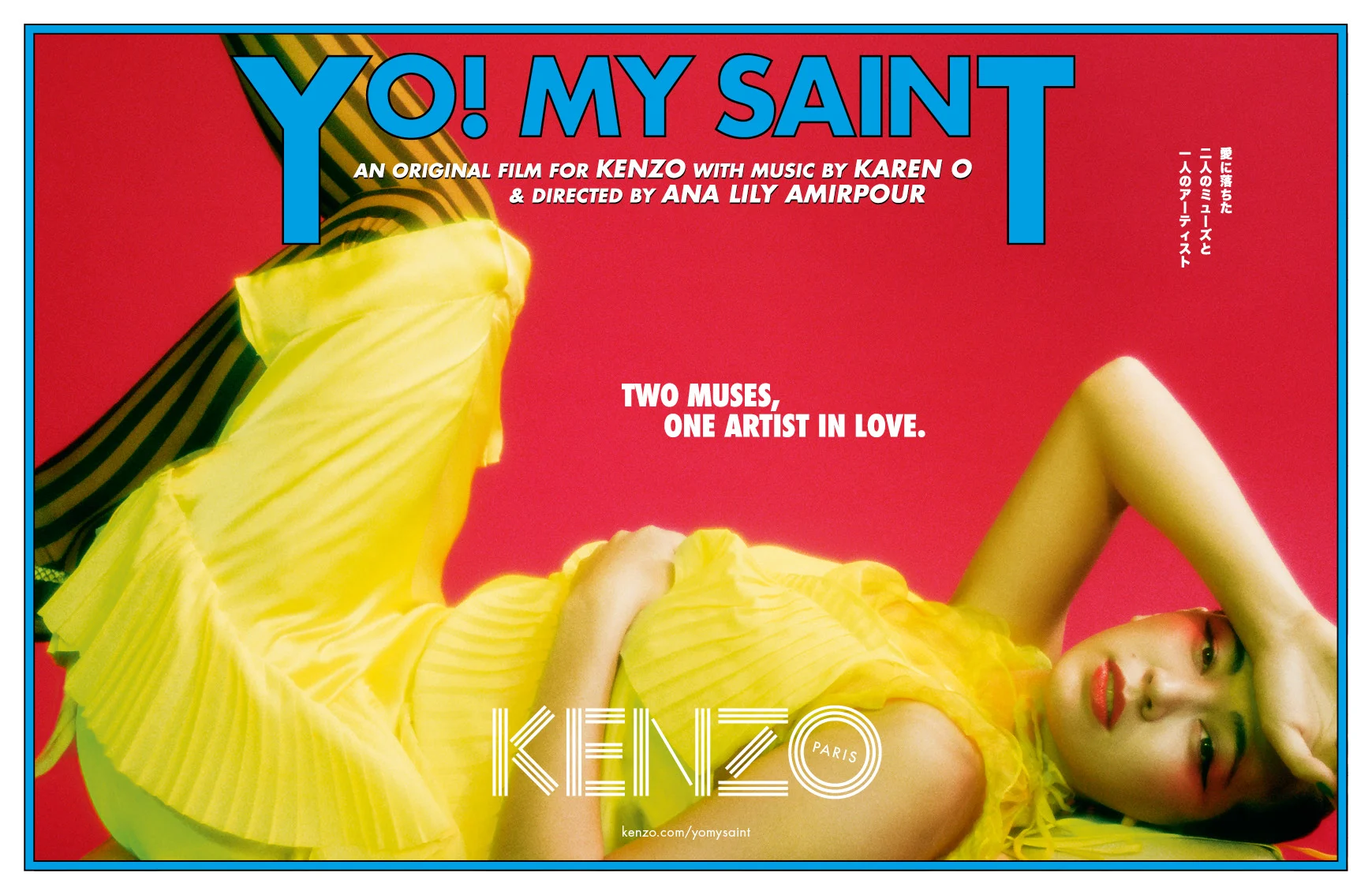Fashion brand is renowned for its bold, brash and beautiful creative collaborations. Previously it's worked with the likes of Kahlil Joseph, Qiu Yang and M.I.A., and its latest jaw-dropper – “a three-pronged artistic endeavor incorporating music, film, and fashion” – was made by filmmaker Ana Lily Amirpour and Karen O of the Yeah Yeah Yeahs.
YO! MY SAINT is a nine-minute short inspired by KENZO’s Spring/Summer 2018 collection. Creative directors Humberto Leon and Carol Lim were inspired by pioneering model Sayoko Yamaguchi and music icon Ryuichi Sakamoto, and the runway show featured an all Asian cast.
Ana Lily and Karen worked in tandem on the project, blending the former’s visuals with the latter’s intense, haunting track (featuring vocals by Michael Kiwanuka). It’s a story about a photographer and his muse, which takes us from the intimacy of the studio to the strange, rarefied atmosphere of a karaoke lounge.
Recently the two women came together to discuss the film at an event in Los Angeles hosted by Women Under The Influence. The following insights are taken from that conversation, hosted by Women Under The Influence founder, Tabitha Denholm.

Karen O: They're total enablers. And they're such a well-oiled machine too. As soon as they want you to do something, you're just on a fucking steam train. They're going to get the best people, they find the money, and it's all to support your creative vision. They're totally awesome.
I've known those guys for so long, probably since the early 2000s. I've been waiting to collaborate with them for a while. They're like an empire now, which is amazing to have friends in high places. But the way that they've succeeded – they're just like, we love the shit out of what we do. That's inspiring. And you can tell, because their love's infused in every part of the process.
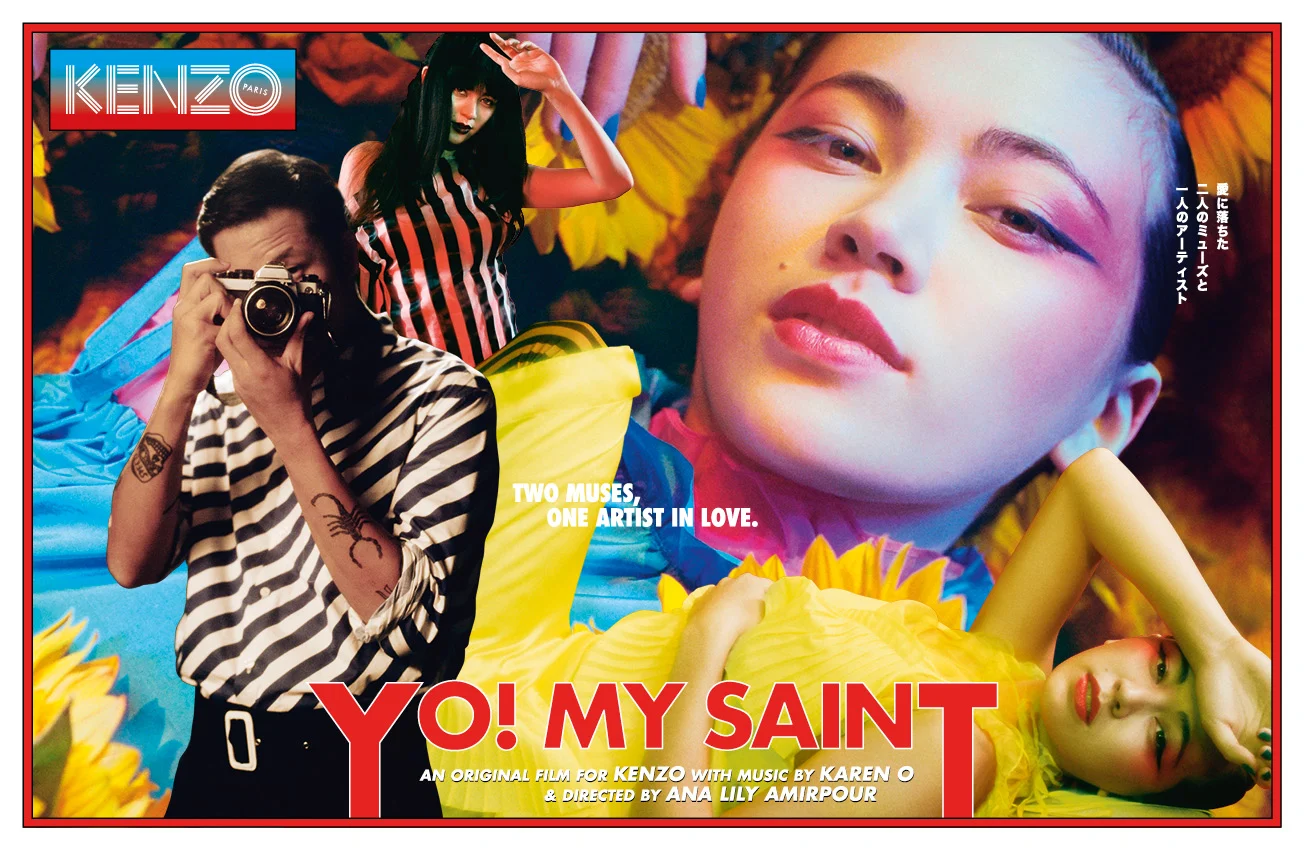

Karen O: I had like a million ideas. Then I brought it to Lily and she went ninja style. She was like, let's just make it this...
Tabitha: Did you know each other before?
Ana Lily: I knew her in my ears and soul.
Karen O: Then right after we met, Bad Batch came out...
Ana Lily: She's like, what? This chick is mental.
Karen O: This is my people.

Tabitha: Was it quite natural for you to make a film to a song? Because, you're not a big fan of a lot dialogue in your films...
Ana Lily: The song has lyrics – a lot of lyrics. And there is a lot of dialogue. There's more dialogue in this short film than in any of my movies. I do love music leading the way, so it was a really natural thing. I'm hard of hearing, so I think that's also part of why I disconnect if there's too much talking and I can't understand. I like watching what I see. Karaoke's great because it's subtitled.
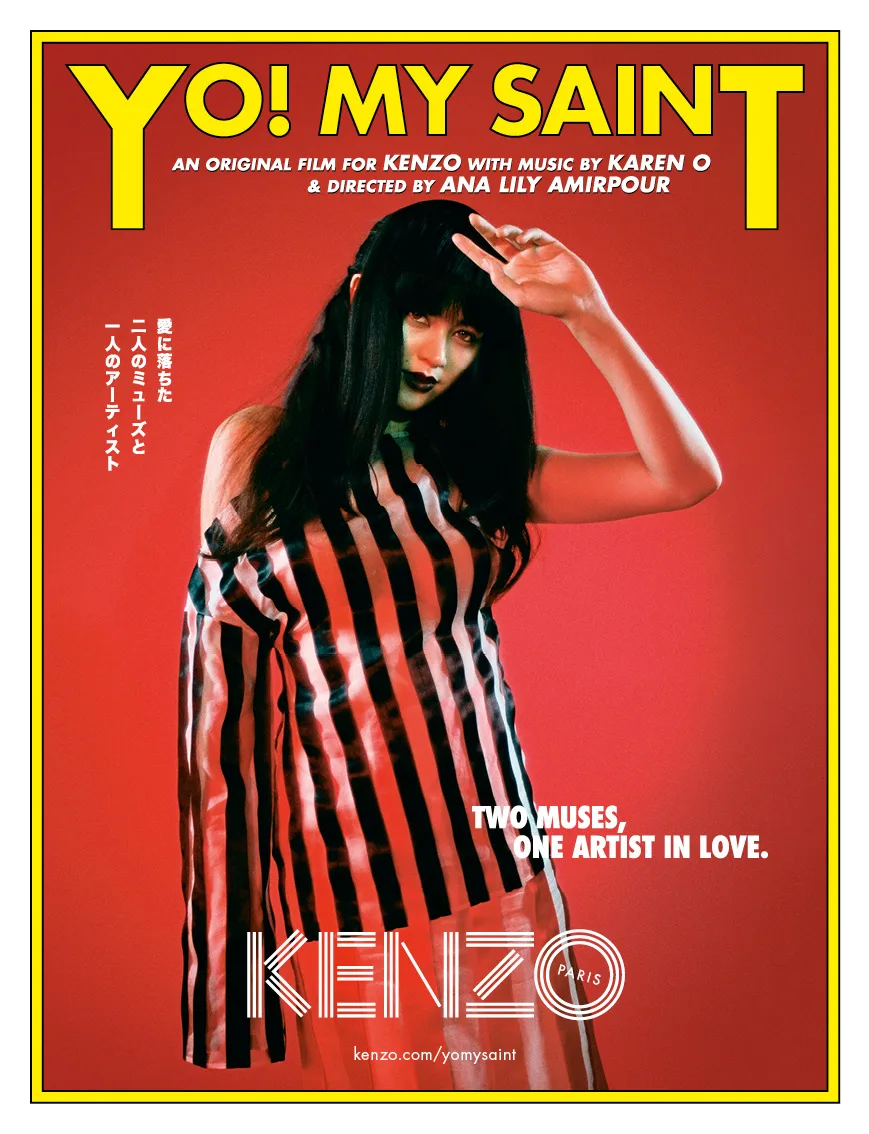
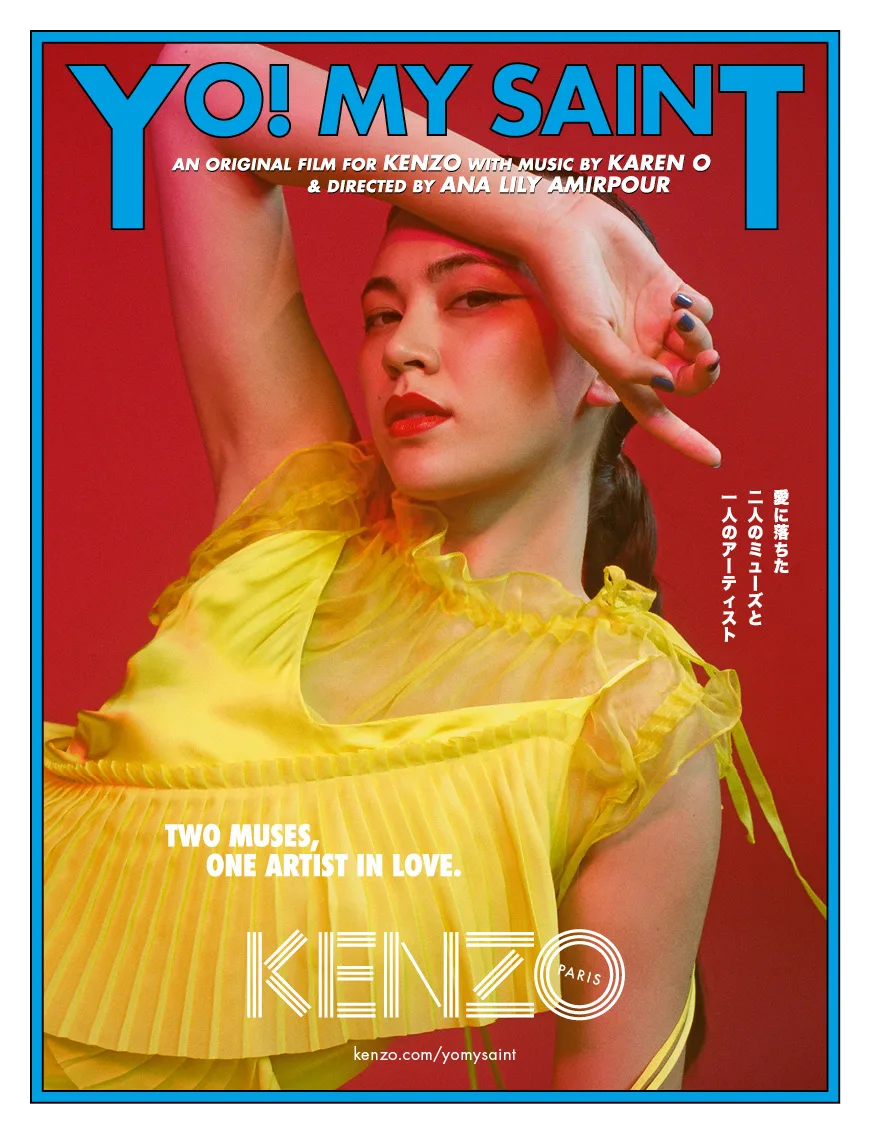
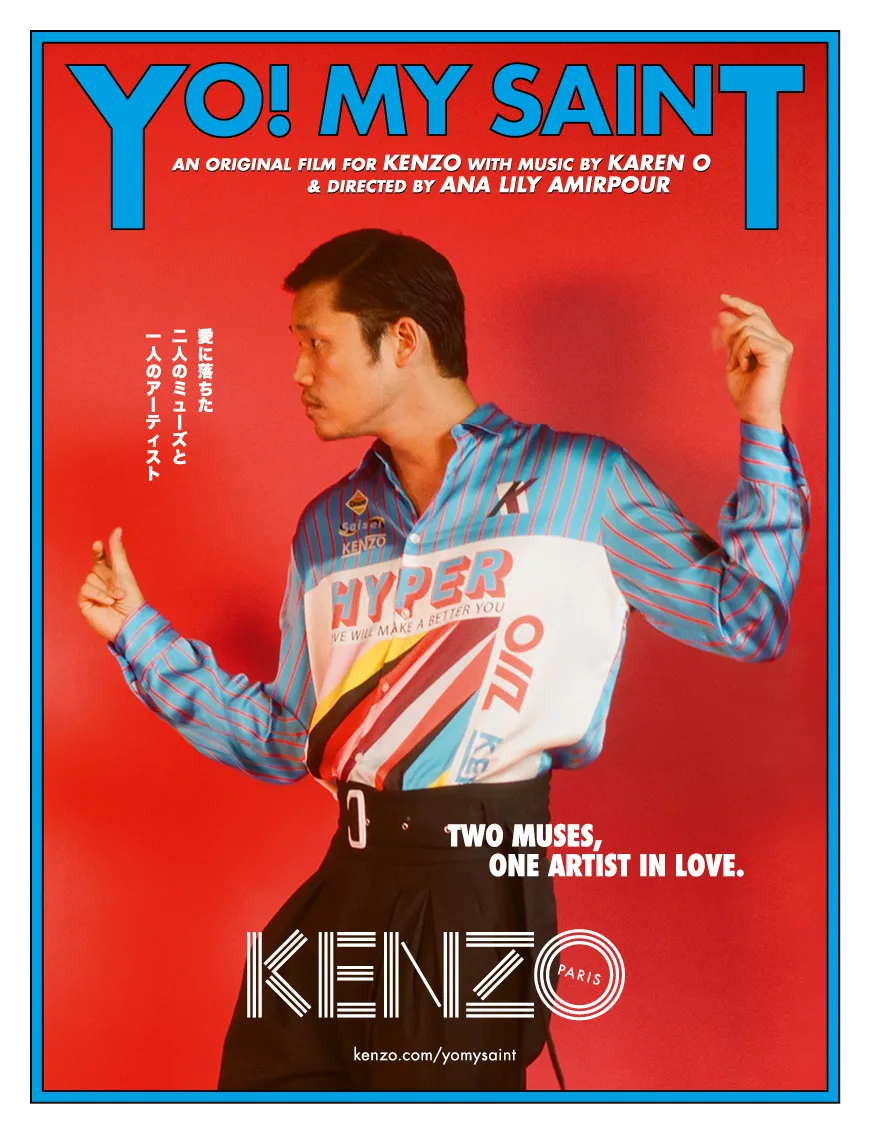

Tabitha: Did you have a backstory in mind for the characters, or is that a secret?
Karen O: Yeah, I had an idea that the muse was like a street kid who just got discovered, but she's punk at heart and really irreverent, and quickly gets bored and worn down from the trappings of the environment of being in the spotlight. She's tough, you know? I think that Blow Up was a big influence for Lily, but probably for me it was like Wong Kar-wai, both Fallen Angels and In the Mood for Love.
The Hong Kong filmmaker, whose film Happy Together won the Palme d'Or for best director at the Cannes Film Festival in 1997. He was pretty chill about it, saying, “It makes no difference, it’s just something you can put on an ad.”
It's all about unrequited love, and it's this really torturous self-restraint, which I also think comes from from my Asian heritage. There's a lot of repression, which just makes for great sexual tension. There's just something about what you want always being out of reach, just out of reach. That's incredibly provocative.

Karen O: I did like the fact that the two muses were Asian, because I'm half-Asian. I pounce on any opportunity to dig into my own Asian heritage, you know? There's just a lot of references that were my life.
Tabitha: Because your mum's Korean, right? So how prevalent was Korean culture in your growing up experience?
Karen O: My dad's Polish American, and he doesn't really have much family. He grew up with a single mom. Any family gathering, it's just my dad and a bunch of Koreans basically.
There's a lot of strong Asian influence in my upbringing, but at the same time, I was a kid in the '80s and it was highly unfashionable at the time. My mom was full-blooded Korean, and she came to the States with my dad. If you have kids with a Korean woman, basically, they want to Americanize you as much as possible. They didn't teach us how to speak Korean. We weren't fully embracing the Korean heritage. I embraced it more when I got a bit older, in my 20s. We mostly grew up as white kids, to a certain degree.
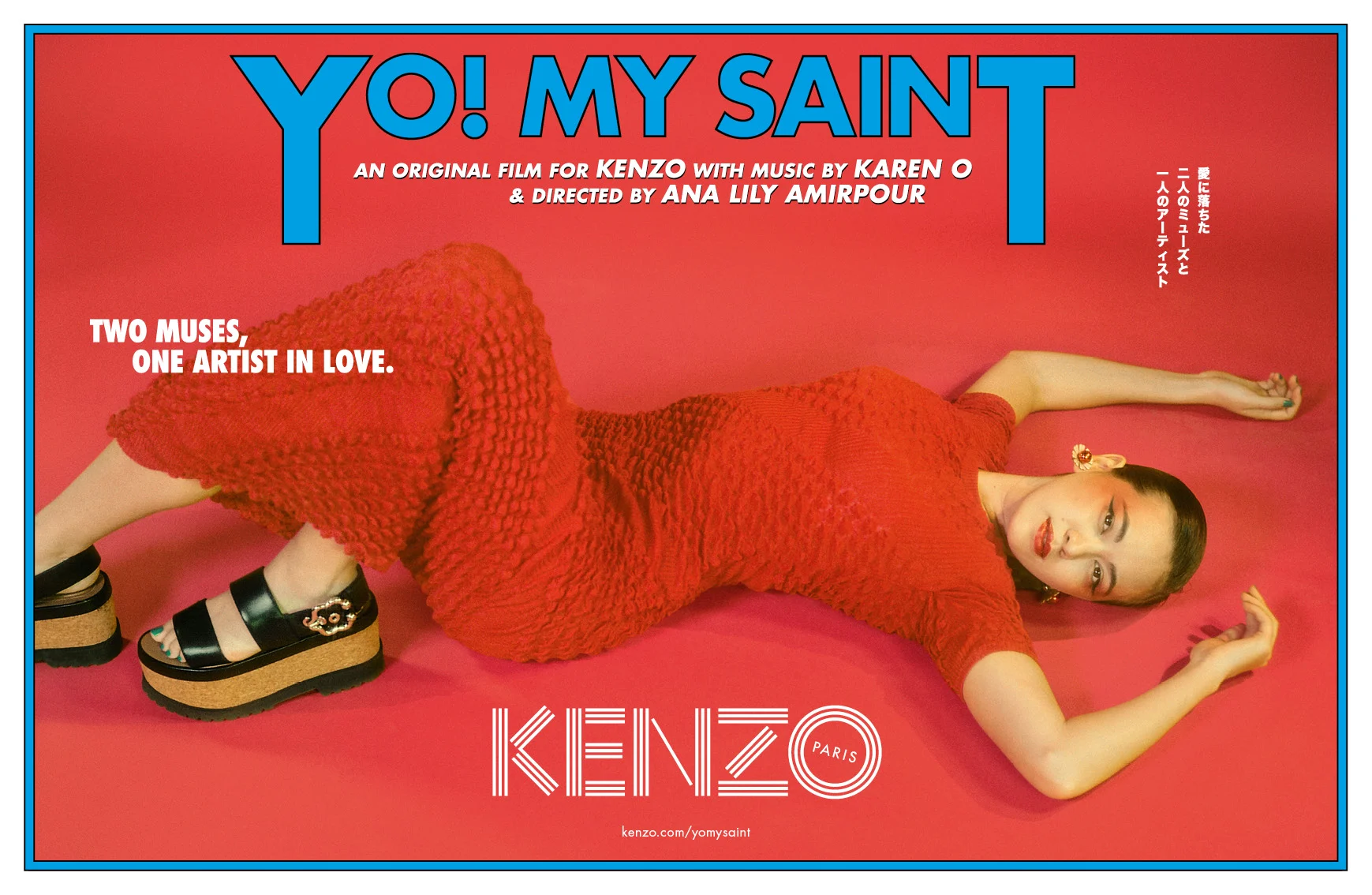
Tabitha: Was your experience similar? Your parents are from Iran, you were born in England. How big an influence was Iranian culture in your life as a child?
Ana Lily: I think it's been a pretty big part. Both my parents are Iranian, and Iranians have a pretty thick sense of culture. When you come into our home, it's Iranian AF. My grandma raised me and she only spoke Farsi, so she's probably single-handedly the reason why I speak Farsi too. So yeah, I think I'm as Iranian as I can be.

Karen O: Karaoke a big deal in Asian-American culture. We're pretty reserved and conservative about a lot of things, but we can really unleash the way we really feel in karaoke. Personally I am not a big fan because it's what I do for a living, you know? But Humberto and Carol are nuts about karaoke.
Ana Lily: It just worked out, like this perfect way to bring this story together. I love those funny, cheesy videos with the sunflowers and stuff. I just love them. It was this perfect metaphor for what the artist does – create a version of the subject by putting them inside their vision or their concept. So it's kind of like a trap or another dimension, and she's in there. The words in the duet were perfect there, and then they could sing together, in the room at the same time, but not be together. It's the shit.
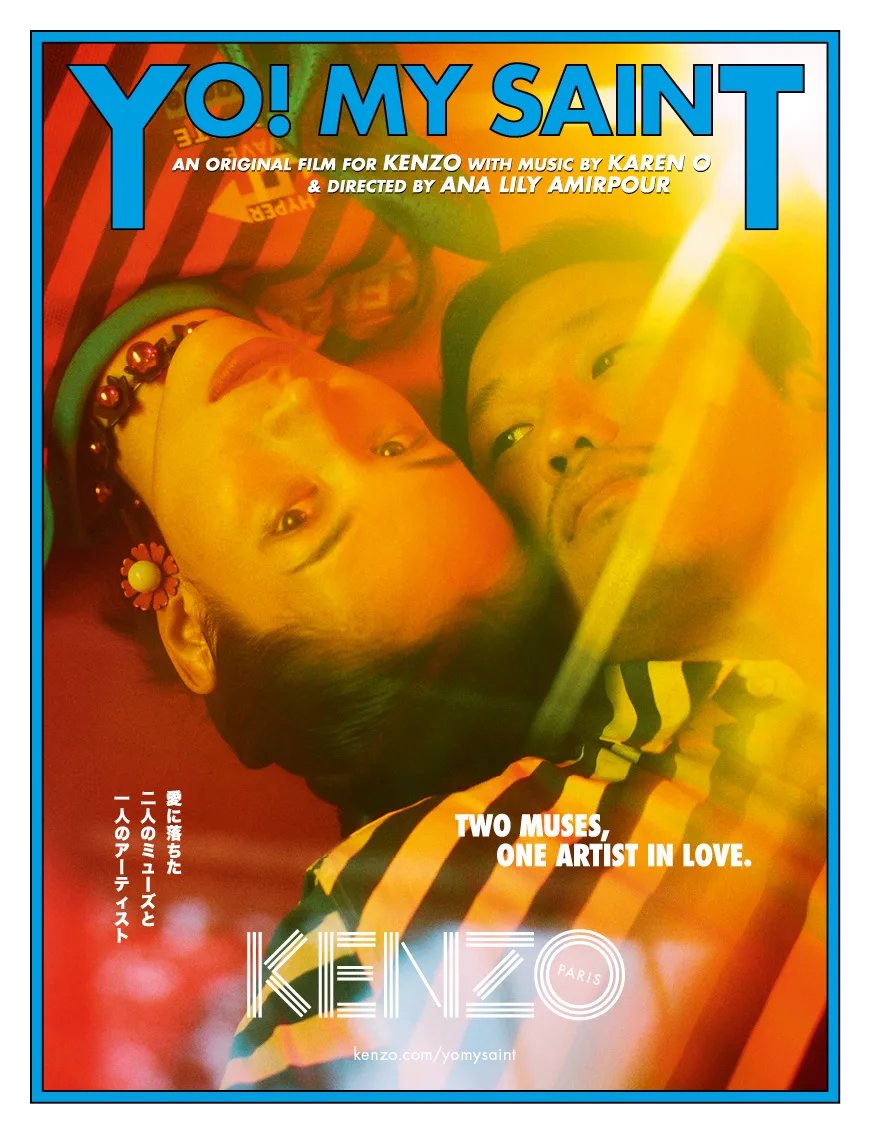

Tabitha: You talk a lot about worldbuilding – what do you find so thrilling in filmmaking, that whole side of it?
Ana Lily: I think movies are the chance to go into another dimension, to leave here and go on an adventure. The movies I was into as a kid were The Neverending Story and The Princess Bride and The Golden Child.
Tabitha: Although you're taking it in a slightly grittier direction than those early influences.
Ana Lily A: The Neverending Story is dark. When that horse goes down in the Swamp of Sadness? That shit fucking branded me. I think that was honestly the first manifestation of loss that deeply fucked with me. The eyelashes of that horse when it was going down... I remember the horse's eyelashes.
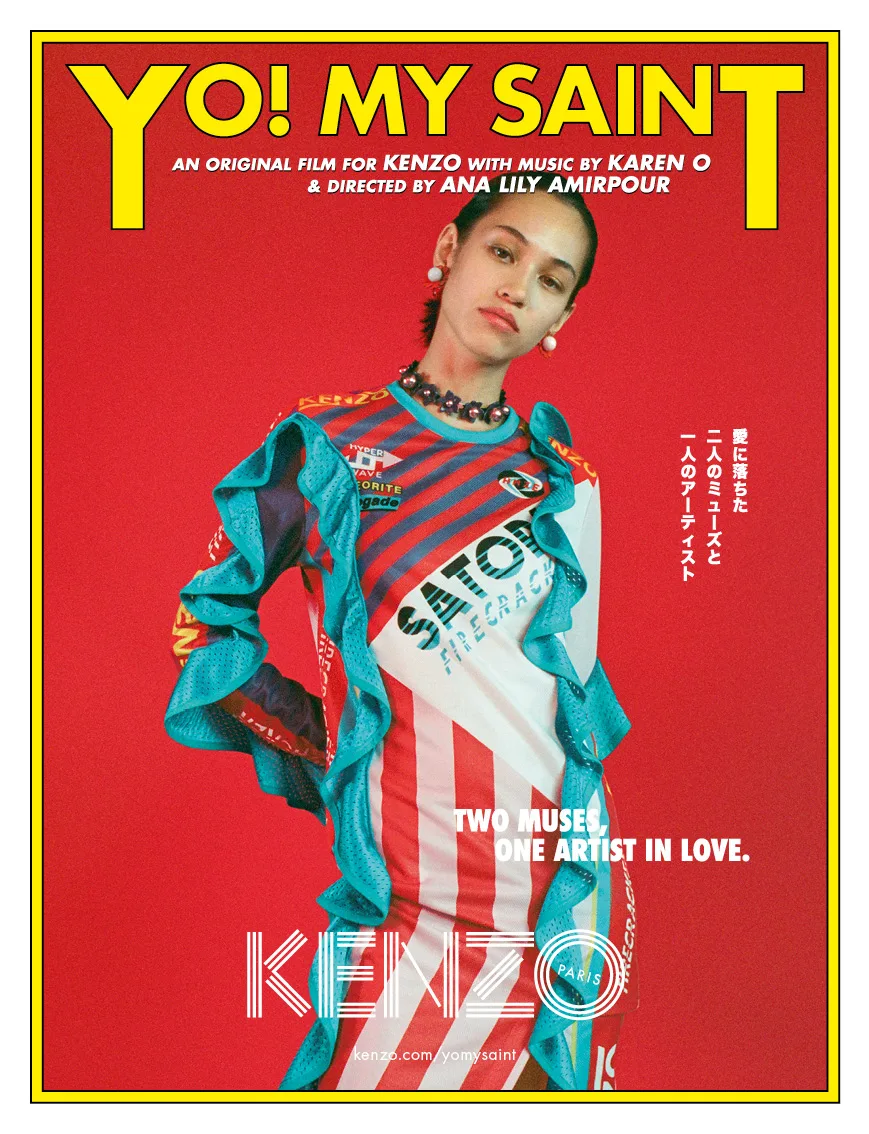

Tabitha: Karen, you are a legit muse to a whole generation of artistically minded girls. It was only you. Did you ever feel that expectation, or trapped by something you'd created?
Karen O: When we started the band, that's sort of when it feels like life's dragging you along. It's not like you're along for the ride, it's just dragging you along for the ride. I was just...
Tabitha: Hanging on?
Karen O: Hanging on, man, you know. Doing the best I could just to do what I was doing and stay afloat with the wild, craziness of it. It was weird, because I did feel like I was floating on my own island. There wasn't a lot of ladies doing what I was doing. There weren't a lot of people that I could relate to, because the rock world is very much a man's world, a dude's world.
Tabitha: Who were your female muses in a performance sense?
Karen O: Women like PJ Harvey, Björk. Patti Smith was awesome, but I kind of caught onto her a little bit later in the game. Those were the ladies who were kicking ass at the time.
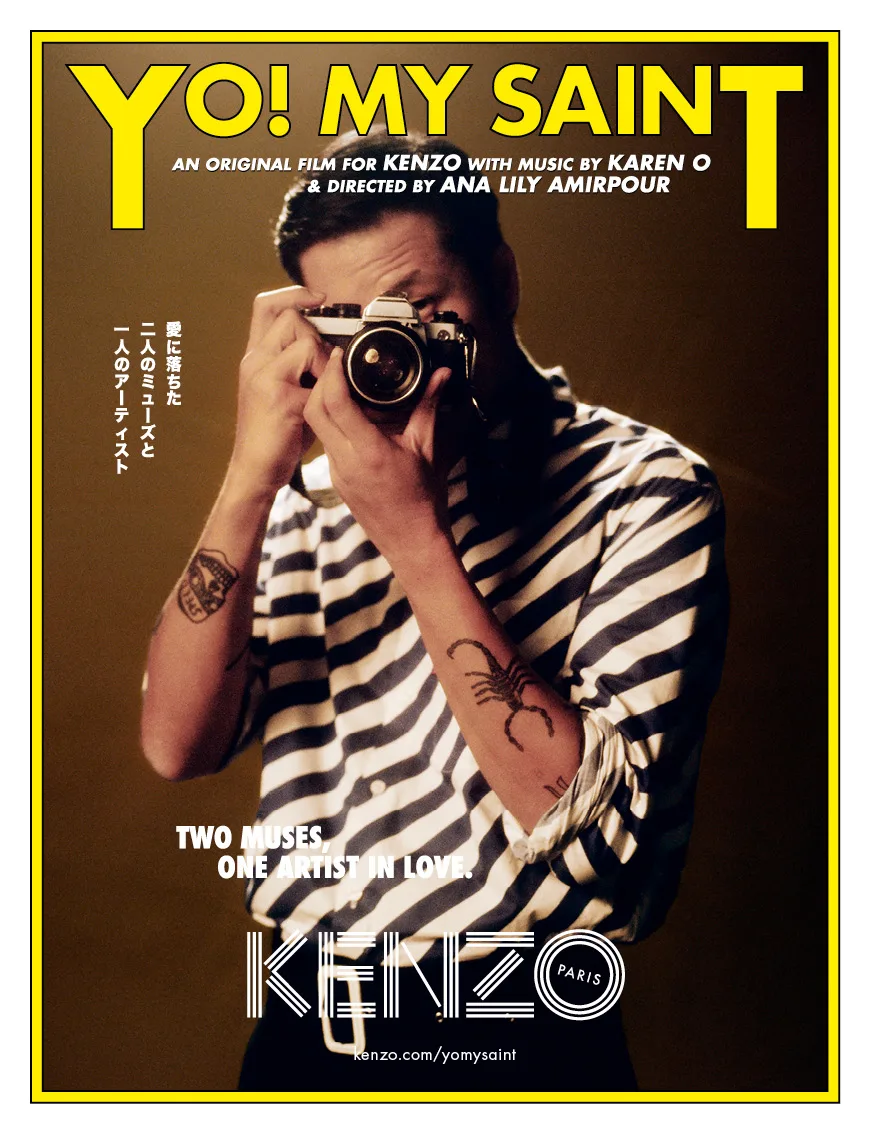

Ana Lily: Karen really wanted a tarantula, and at first I was like, we're not going to be able to have it. Then at the end, we got it, and it ended up being one of the raddest things in there. I think if you choose to climb up a mountain with someone, you should listen to them, because they're holding the rope that is going to hold you from falling. You're climbing a mountain together.
